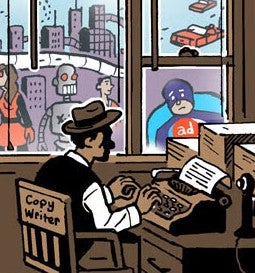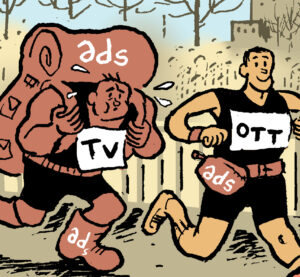The End Of The Agency Era?
AI tools have become synonymous with cheaper and faster creative production – and that isn’t necessarily good news for agencies.
So WPP’s taking a different tack: If you can’t beat the machines, join ’em.
On Monday, the holdco released a suite of AI tools for brands called WPP Open Pro, a version of WPP Open designed specifically for smaller businesses that aren’t working with full-service agencies, Reuters reports.
Last month, Cindy Rose was hired to take over as CEO from Mark Read after Publicis surpassed WPP in size, earning the title of world’s largest ad company.
Rose insists that WPP’s creative and strategic talent will always “be at the heart” of its success, per Reuters, but as technology evolves, more tools need to be put directly in the hands of advertisers.
Now, users of WPP Open Pro can generate channel-specific ads almost instantly and push them into WPP’s Open Media Studio to activate.
A New Seg
When YouTube announced last month that it will start testing dynamic sponsored segments for creators next year, it may have locked in the most consequential creator monetization update of 2026, according to Digiday.
Sponsored segments aren’t live ads you can bid on; they’re baked right into a video and uploaded as a single piece of content. What YouTube will be testing is the ability to drop in a new segment, akin to how dynamic ad insertion works with podcasts.
Right now, advertisers pay to sponsor a post and, once it’s live, the results are what they are. But with biddable segments, creators earn a little each time an ad runs, turning viral or evergreen posts into steady revenue. It also flips targeting from the content to the viewer.
Brands can still retain exclusivity rights or control end dates, but now those become features they have to pay up for.
“It’s going to be a lot of negotiating,” says Jonathan Chanti, co-founder and CEO of creator services company Reign Maker Group.
Save The Drama
Quibi may be gone, but its ghosts still haunt us.
The Wall Street Journal reports that Hollywood is getting into “microdramas,” which are serialized, vertical-video programs that tell a single (often melodramatic) story in one-to-three-minute chunks.
Microdrama “studios” typically release a few episodes for free on social media before redirecting viewers to download an app. These apps tend to offer both ad-supported and subscription tiers.
Most English-language microdrama companies are funded by backers in China and Singapore, where the medium first gained traction. But now, new US-backed companies are starting to crop up, such as GammaTime, which launched this week and features shows produced by “CSI” creator Anthony Zuiker, including one called “The Lust Cop.”
That groan-worthy title belies the most obvious problem with this move. Part of why microdramas get so much social media engagement is because they’re, well, bad. Also, they can be effectively monetized with six-second ads interspersed throughout.
Sure, the vertical-video market is currently worth an estimated $8 billion (primarily in China), but does that content hold up when it’s taken out of social feeds?
But Wait! There’s More!
From hatred to hiring: How OpenAI has changed its tune on advertising. [Digiday]
Google VP Dan Taylor on AI and 25 years of Google Ads. [Tipsheet.ai]
OpenAI’s new Atlas browser still “feels like Googling with extra steps.” [The Verge]
Are business execs going to be the next hit podcasters? [Adweek]
YouTube adds a timer to Shorts to help users manage their infinite scrolling. [TechCrunch]
Amazon unveils a “Help Me Decide” button that uses AI to analyze past browsing behavior and make product recommendations. [blog]
Here’s today’s AdExchanger.com news round-up… Want it by email? Sign up here.















